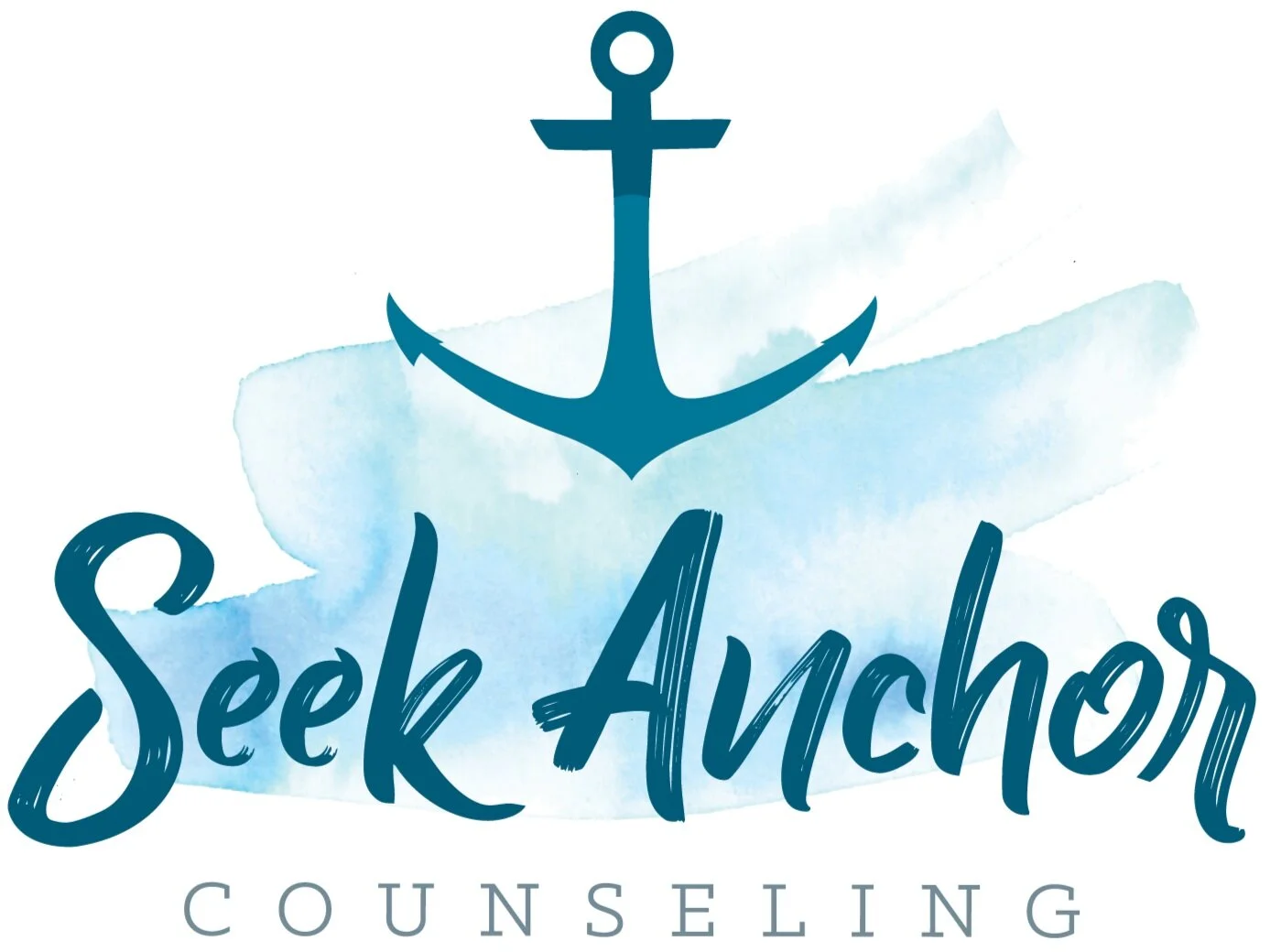Relying on your own experiences as a compass will feel disorienting but eventually like a returning home.
Need a safe place
to Navigate from?
Therapy provides a safe space to explore your experiences, understand their impact, and empower you to create lasting change—because reclaiming your sense of self and finding what anchors you is possible.
Disorientation often follows when you begin to pull up anchor, leaving behind familiar shores without a clear map of what’s next.
I offer a steady, supportive space to explore what’s possible—a place to acknowledge where you’ve been, why you went there, and what pieces of your story you want to carry forward.
If you feel caught between two worlds—torn between competing beliefs or cultures, never quite fitting fully into either—you're not alone. Life is full of messy tensions. People who were meant to be safe can let us down. The habits that once helped us survive may now weigh us down. At times, inaction feels paralyzing; at others, thoughts flood in without rest. Sorting through these tensions alone can be exhausting, frustrating, and isolating.
Suffering often lives in the space where we struggle to integrate doubt, pain, and uncertainty. Therapy at its best is both an anchor and a compass—a place to affirm your strengths while gently confronting the patterns that no longer serve you. Together, we can navigate the complexities of your story and uncover what it means to move toward healing and possibility.
How I can Help
New Service Option
Holistic Single Therapeutic Intensive
Over the course of one day, we’ll explore your relationship with:
Your Thoughts – How your thought patterns influence your reality and how to shift any negative or limiting beliefs.
Your Emotions – Understanding how emotions manifest, what they’re telling you, and how to navigate them with greater ease and acceptance.
Your Intuition – Reconnecting with your inner guidance and learning how to trust yourself and make aligned decisions.
Your Relationships – Reflecting on your connections with others, how you relate to them, and how to establish healthy boundaries and communication.
Each of these areas will be addressed in their own session, with ample time for reflection, insight, and tools to help you process. The day will conclude with an integrated review of everything we’ve discussed and help you identify your next most impactful healing steps.
When you know you want to grow but are not sure how. Getting to know yourself is a great place to start.
Sometimes therapy can be touchy-feely.
A lot of times that is what you need.
And sometimes it is helpful to take an exploratory approach.
Absolutely, you will have the opportunity to discuss your thoughts and actions and sit in the discomfort of your negative emotions. But also, we will use science and personality theories to help you understand why you have the thoughts and habits you do.
And, we will use that insight to help you increase your awareness, define what growth means for you, and develop trust in your decisions.
You get to decide what you want to do about the things you learn.
I’ll ask the curious questions, provide nonjudgmental space for you to explore them, and then support you with what it means for you moving forward.
Tools we can use
Family History
Families are the products of the cultures that weave them and culture the product of a wealth of history. Family bestow strength and frailties in collection of moments made over a lifetime. Family may not determine our destiny, but the interconnected experiences within a family system shape us as individuals. The family tree contains the roots of our sense of self, sense of others, and sense of what the meaning of it all is. Clarification of how your system works can give context and courage to define your identity as it is has been shaped by the emotional, social, and spiritual culture.
Enneagram
If you have ever heard a person describe themselves by a number and then move on in conversation assuming you now know the full essence of who they are, you have encountered the enthusiasm of the enneagram tool. I’m not going to lie, I have the enthusiasm too. Mostly because there are few things more powerful than understanding your motivations, intensions, and fears in a way that directs you toward individualized growth. No one can tell you what type you are which means you are responsible for developing the deeper understanding of your internal patterns. How could using this tool in therapy not be a good idea?
Core Values
What directs your priorities, pet peeves, and acquisition of beliefs? Core values are our personal fundamental driving forces. Often we build structures and patterns in our lives to uphold and honor our values. But surprisingly, a lot of us do not ever take the time to define and name them. Is your priority of family a value of leadership…, legacy…, or being needed? Is your need to be liked a value of safety…, connection…, or meaning? Knowing what your core values are can make the difference between anxiously anticipating outcomes and intentionally living into them.
Shadow work
Exploring sides of yourself that you've exiled or repressed… That “dark side” is the parts of us we try to out run or hide. But doing this just means you don’t ever get to invite it into the light. Shadow work is a practice of healing and self growth that asks you to suspend judgment on yourself. Instead of attacking everything that you don't want to think, feel, or address, go into this process with an attitude of compassion for yourself and your experiences. Bring your shadow closer; it is a part of you after all. More kindness towards yourself might change you more than you think.
Support for Those Hurt by Anti-LGBTQ+ Theology
I offer trauma-informed care for queer individuals
who’ve been harmed by religious, cultural,
or family systems that told them they didn’t belong.
Support to Embody your Resilience
Are you kind of just used to it now?
The endless arguments about who you can love, where you can pee, whether you deserve cake or a pew.
These not-so-subtle messages about all the ways you are unacceptable or other-ed from the rest of society seem to be your story backdrop.
You show your bravery by being unfazed but the unworthiness messages can easily seep into your own self-talk.
The Struggle is real…
To protect yourself, you become an expert at hiding – Sometimes hiding is the only way you can be seen. Seen for your creativity, your faith, your love of family, your ability to decide well for yourself. Hiding one part of yourself is just the price you pay to be acknowledged for the others.
If you know what it means to disown and reject important parts of yourself to avoid further rejection, you know what I mean. Contorting becomes confusing, draining, and sometimes even risky. It can be tempting or even necessary to numb the pain which inevitably shows up in your life somewhere. And who could blame you for that.
all that Resiliency is sometimes too much and you deserve support !
I don’t know what thriving looks like for you, but I know you deserve a place free from the need to hide any part of yourself. You deserve to explore your world to the fullest. Therapy can be a safe place to rest from any weariness you have picked up along the way and find new energy for your next rainbow step.
🌿 Religious Trauma Recovery
When your faith teaches you not to trust yourself,
healing becomes revolutionary.
Religious trauma often coincides with internalized beliefs like:
“Your heart is deceitful.”
“Your mind is fallen.”
“Your emotions are dangerous.”
“Your body is sinful.”
These messages can take deep root in your psyche, especially if they were reinforced through community, scripture, or high-control religious systems. If you resonate with this, then you understand the profound emotional and psychological work that survivors of religious trauma face.
Untangling these dehumanizing beliefs is no small task. When you've been taught not to trust your thoughts, feelings, or physical responses, it can feel impossible to find your way back to yourself.
My Approach to Religious Trauma Work
I begin with this core belief:
You are intrinsically good.
The parts of you that may now feel confusing, stuck, or conflicted have good reasons for showing up the way they do. Our work is to approach those parts with acceptance, compassion, and curiosity—not shame or force.
I’m not here to sit silently while you spiral—nor am I here to push you toward a doctrine.
Instead, I hold space for the heaviness, offer feedback when you're feeling stuck, and help you find the next step that honors your nervous system and your values.
🪴 Healing from dehumanization requires rehumanization.
Together, we’ll work to reconnect you with your:
Body
Intuition
Emotions
Personal truth
Sense of safety and identity
This is the heart of religious trauma recovery:
Not just surviving what was done to you—but flourishing beyond it.
This Isn’t About Debating Beliefs.
It’s about rebuilding your self-trust.
Working with a religious trauma therapist isn’t about arguing scripture or convincing you to think a certain way. It’s about helping you develop a secure sense of self—one that doesn’t rely on rigid systems of control, fear, or performance.
“THE CURIOUS PARADOX IS THAT
WHEN I ACCEPT MYSELF JUST AS I AM,
THEN I CHANGE”
— Carl Rogers















